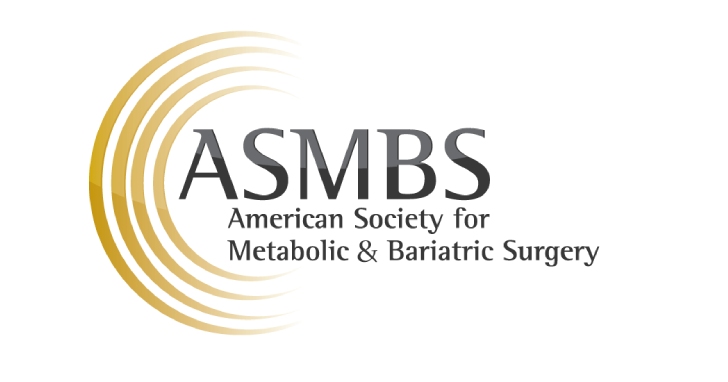At our practice, we prioritize a swift and comfortable recovery for every weight-loss surgery patient. Utilizing cutting-edge techniques like intra-abdominal wall blocks with long-acting analgesics, we ensure optimal pain management, resulting in high patient satisfaction during the recovery journey.
Meet Dr. Ricardo Bonnor, MD, FACS, FASMBS, a highly skilled and board-certified surgeon dedicated to your well-being. For more information about bariatric procedures, or to schedule a consultation, please call (281) 579-5638.


Contents
Benefits of Bariatric Surgery
- Improved Weight Management
- Enhanced Metabolic Health
- Reduced Risk of Obesity-Related Diseases
- Increased Energy Levels
- Relief from Joint Pain and Mobility Issues
- Decreased Dependence on Medication
- Improved Fertility in Women (1)
- Better Sleep Quality
- Improved Overall Quality of Life
About Bariatric Surgery Recovery
Bariatric surgery is a life-changing procedure that can help individuals struggling with obesity achieve significant weight loss and improve their overall health.
Post-bariatric surgery recovery can vary depending on the specific procedure performed, such as gastric bypass, sleeve surgery, duodenal switch, or revisions. However, some general guidelines and tips can help facilitate a smooth and successful recovery process.
What Will Happen Immediately After My Surgery?
Postoperative Care Unit (PACU)
Immediately following the surgery, at the free-standing surgery center and at the hospital, we will monitor you closely in a post-anesthesia care unit (PACU) to ensure your safety and comfort. (2) This monitoring time typically lasts 45 minutes to one hour.
Post-PACU
Some patients are candidates for outpatient sleeve gastrectomy. In the post-PACU phase in the free-standing surgery center, you will start walking and begin liquid intake. After this monitoring phase and after exceeding certain metrics you will meet the criteria for discharge about six hours post-surgery.
If your surgery is assigned to the hospital, you will begin your monitoring process for an extended time requiring an overnight stay. The post-operative checkup usually occurs two weeks post-surgery.
Wound Healing
Drains are not used for these procedures, allowing a faster recovery process.
For both robotic and laparoscopic cases, patients have four incisions. These incisions are sutured with an absorbable suture and then covered with a dressing. Patients are allowed to shower post-op on day one. The special dressing allows patients to shower without needing direct wound care. There should be no bathtub or pool use for two weeks post-surgery.
Post-Surgery Nutrition
Following surgery, patients will progress through various stages of post-bariatric surgery nutrition. This diet gradually introduces different food textures and consistencies, starting with liquid-only options and progressing to solid foods over time.
Typically, the dietary advancement after gastric sleeve surgery is as follows:
- Liquids (Day 1-14 post-surgery)
- Pureed Diet (day 14 to day 28)
- Soft /solid Diet (Begin 1 month post-surgery)
Hydration
Staying adequately hydrated is crucial after WLS. Patients should aim to drink 64 ounces of fluids daily, with an emphasis on water and avoiding sugary beverages.
Eating Habits
It is essential to develop healthy eating habits after bariatric surgery. This includes:
eating smaller meals, chewing food thoroughly, and avoiding drinking fluids during meals to prevent discomfort and promote better digestion.
Protein also plays a vital role in the healing process and helps preserve muscle mass. (3) Patients should prioritize protein-rich foods, such as lean meats, fish, eggs, and legumes, to support muscle repair and maintenance. They should limit sugar, processed foods, and high-fat snacks to prevent weight regain and promote overall health.
Nutritional Supplements
Nutritional deficiencies can occur after bariatric surgery. Weight-loss surgery can significantly impact your digestive system and nutrient absorption, making it necessary to supplement your diet with specific vitamins, minerals, and other nutrients. (4) Dr. Bonnor will carefully monitor your vitamin and mineral levels through regular blood tests to identify any deficiencies. If necessary, he may recommend specific supplements to ensure you receive adequate nutrients for optimal health and well-being.
Physical Activity & Exercise
Right after surgery, patients should begin walking regularly to maintain good blood flow. Similarly, at three weeks post-operation, they can start working out, focusing on cardio exercise and light weights This will not only help burn calories but will also improve cardiovascular health, boost metabolism, and enhance mental well-being.
Commonly Asked Questions (FAQ)
How much weight will I lose after weight-loss surgery?
Bariatric surgery is an effective tool for significant and sustained weight loss. On average, patients can expect to see a 60-80% decrease in their excess body weight for gastric bypass and 60 to 70 % for sleeve surgery. (5) However, individual results may vary depending on various factors such as adherence to dietary guidelines, exercise habits, and overall commitment to lifestyle changes.
How much will I have to change my diet after weight-loss surgery?
Following bariatric surgery, you will need to make lifelong dietary changes. These may include avoiding high-calorie and sugary foods, carbonated beverages, alcohol, and foods that are difficult to digest. It is essential to focus on consuming nutrient-dense foods while maintaining portion control to support weight loss and prevent nutritional deficiencies.
Will I have to take vitamins after weight-loss surgery?
Your surgeon will recommend specific supplements based on your individual needs. Commonly prescribed supplements include a multivitamin, calcium, iron, vitamin B12, and vitamin D.
References
- Nori W, Akram W, Ali EA. Fertility outcomes following bariatric surgery. World Journal of Experimental Medicine. 2023;13(1):1-3. doi:https://doi.org/10.5493/wjem.v13.i1.1
- Elrazek AEMAA, Elbanna AEM, Bilasy SE. Medical management of patients after bariatric surgery: Principles and guidelines. World Journal of Gastrointestinal Surgery. 2014;6(11):220. doi:https://doi.org/10.4240/wjgs.v6.i11.220
- Bertoni L, Valentini R, Zattarin A, et al. Assessment of Protein Intake in the First Three Months after Sleeve Gastrectomy in Patients with Severe Obesity. Nutrients. 2021;13(3):771. doi:https://doi.org/10.3390/nu13030771
- Sawaya RA, Jaffe J, Friedenberg L, Friedenberg FK. Vitamin, mineral, and drug absorption following bariatric surgery. Current drug metabolism. 2012;13(9):1345-1355. doi:https://doi.org/10.2174/138920012803341339
- Hubert, Papasavas, Stone, et al. Associations between Weight Loss, Food Likes, Dietary Behaviors, and Chemosensory Function in Bariatric Surgery: A Case-Control Analysis in Women. Nutrients. 2019;11(4):804. doi:https://doi.org/10.3390/nu11040804







